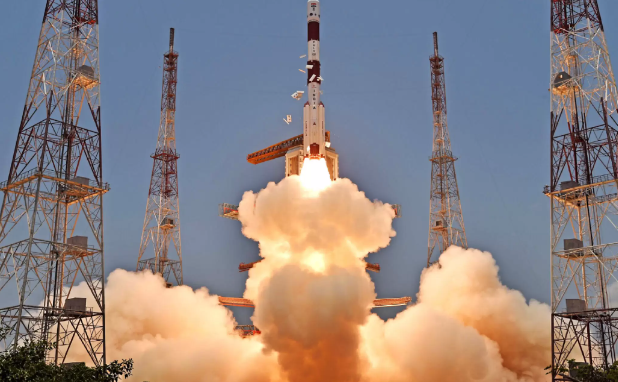PSLV Orbital Experimental Module-3 (POEM-3)
The Indian Space Research Organisation (ISRO) has achieved another milestone with the successful re-entry of the PSLV Orbital Experimental Module-3 (POEM-3) into the Earth’s atmosphere, leaving no debris in orbit.
The PSLV-C58/XPoSat mission, which took place on January 1, 2024, has demonstrated ISRO’s commitment to responsible space operations and debris mitigation.
POEM-3 Mission Objectives and Payloads
POEM-3 was equipped with nine different experimental payloads to conduct technology demonstrations and scientific experiments on newly developed indigenous systems. Six of these payloads were delivered by Non-Government Entities (NGEs) through IN-SPACe. The mission objectives of these payloads were successfully met within a month of the launch.
Deorbiting and Re-entry Process
Following the successful placement of all satellites into their designated orbits, the final stage of the PSLV was converted into a 3-axis stabilized platform known as POEM-3. The stage was then deorbited from an altitude of 650 km to 350 km, facilitating an expedited re-entry process. Measures were also taken to passivate the stage, including the removal of residual propellants, to reduce the potential risks associated with accidental break-ups.
Impact Location and Tracking
The orbital altitude of the upper stage continued to decay under the influence of natural forces, primarily atmospheric drag. POEM-3 was expected to have impacted the North Pacific Ocean on March 21, 2024. Until near re-entry, POEM-3 was tracked by ISTRAC ground stations, and the Multi-Object Tracking Radar (MOTR) at Shriharikota also tracked the PS4 stage until the morning of March 21.
Opportunities for Academia, Startups, and NGEs
Through the POEM platform, which serves as a cost-effective option for conducting short-duration space-borne experiments, ISRO has opened up new opportunities for academia, startups, and NGEs to experiment with their new payloads.
This opportunity has been effectively utilized by numerous organizations for carrying out experiments in space, including electric thrusters, satellite dispensers, and star-tracking.
Responsible Space Operations
With the emergence of numerous small satellite constellations, the agency recognizes the substantial risk space debris poses to space operations, including satellite launches, human spaceflight endeavors, and exploration missions.
As a responsible space agency, ISRO has pledged to tackle this challenge by advancing debris tracking systems, developing technologies for space object deorbiting, and promoting responsible practices for satellite deployment.
Important Facts for Exams
- The Vikram Sarabhai Space Centre (VSSC) has taken the lead in conceptualizing and realizing the POEM by augmenting the 4th stage of PSLV.
- PSLV-C58/XPoSat is the third such mission in the series, with POEMs being successfully scripted each time.
- The payload operations were carried out effectively by the spacecraft operations team from the mission operations complex (MOX) at ISTRAC.
- ISRO’s System for Safe and Sustainable Spacecraft Operations Management (IS4OM) has been monitoring and analyzing the orbital decay throughout the mission.
- POEM-3 was also supported by other ISRO centers, including URSC, LPSC, and IISU.
Month: Current Affairs - March, 2024
Category: Science & Technology Current Affairs








